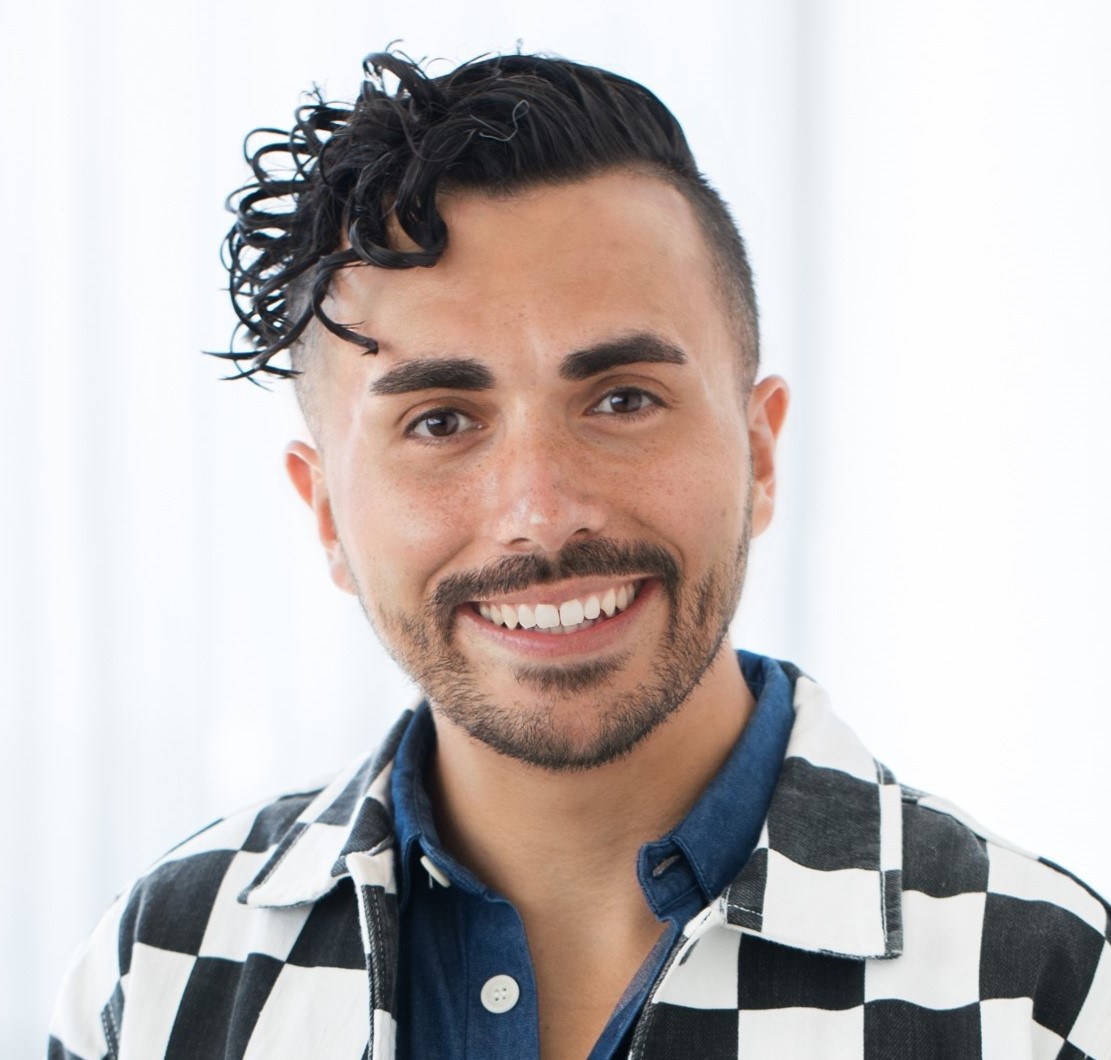By Alejandro Gibes de Gac
When I was 7, my family immigrated to the U.S. escaping political persecution and seeking educational opportunities. We rented the tiniest house in an affluent town with a reputed public school. I stuck out like a sore thumb: dark skin, broken English, and no money. Many of my elementary school peers delighted in reminding me that I did not fit in.
Material possession and physical appearance were the social currencies of my K-12 school environment, and I agonized over my inability to buy into the game. I could neither purchase the Abercrombie shirt, nor could I resemble the shirtless model on the bag. My antidote to feeling inferior was affirming superiority in academic pursuits. I buried my head in the books and dedicated myself to a singular goal: getting into Harvard. Though Harvard’s acceptance rate hovers around 5%, I knew I had slimmer odds of finding acceptance amongst my classmates. Over the years, I developed the simultaneous inferiority and superiority complex that many immigrants grapple with. Achievement in the face of adversity became the fuel my engine runs on.
When goal orientation becomes goal obsession…
Perhaps unsurprisingly, I grew up to become an intensely goal-oriented person. I thrive on accomplishment, though I rarely feel a sense of accomplishment. I derive energy from the pursuit of an ambitious goal; however, once the goal is achieved, I don’t know what else to do but move the finish line. “Good is never good enough” is a philosophy that has served me well in my professional life. Since founding Springboard Collaborative eight years ago, we have grown into an award-winning, $17M organization that employs 43 people and has helped over 14,000 children reach reading goals. You can read more about Springboard on NPR and in the New York Times.
As Springboard embarked on a meteoric growth trajectory, the line between my personal and professional life blurred, then disappeared altogether. My workday had no clear beginning or end, and there was no off switch or even a pause button to be found. The intense goal orientation that was paying dividends professionally became a force that I could no longer willfully channel. Goal orientation gave way to goal obsession.
Soon after joining a CrossFit gym in 2014, I began to take that same approach to fitness. CrossFit lends itself to competitive, outcomes-oriented individuals (for better and for worse). Every workout is quantified and tracked publicly on a leaderboard. With music blaring and my competitive drive ignited, I soon began attaining levels of fitness that had eluded me for the last decade. My physique was changing before my eyes, and I was enthralled by the prospect that I might finally fulfill my childhood longing. Abercrombie bag, here I come!
I began tuning into the Paleo and “clean eating” chatter at the gym; as soon as I purchased a bathroom scale and started tracking my caloric intake on the app MyFitnessPal, all bets were off. I set weekly targets for weight loss and weighed in twice daily. I meticulously tracked every calorie consumed and set increasingly spartan targets. Could I get away with eating 1,500 calories per day? How about 1,000? What if I started working out twice daily? Over the course of two years, the situation spun out of control. I was running an average of eight miles per day, doing CrossFit six days per week, and fueling it all with fewer than 800 daily calories of food. I had shed 45 pounds—weight that I did not have to spare.
All the while, I deluded myself into believing that my spiraling behavior was a virtuous feat of willpower. I hid behind cultural trends and diet fads (e.g.: “eat clean”, “grind harder,” “#gainz”, “twice-a-days”, “intermittent fasting”, etc.). I convinced myself that self-love was just around the corner, if only I worked harder. Just five more pounds. Still not happy? Perhaps another five…
Eventually, my body fought back. My spells of deprivation gave way to periodic binges, usually on weekends. Of course, this was my body’s way of trying to keep me alive. In my mind, however, these were temporary lapses of judgment. The morning after eating half a pizza, I would awake and run half a marathon as penance. I did not have the awareness to categorize my over-exercising as a purge; in high school health class, we had been taught that purging meant vomiting. Over time, my deprivation got worse; as did the binges in equal measure.
Investing in people, but really…
A year later, I knew that I was in trouble. Though I was not yet ready to admit to myself that I had an eating disorder, my debilitation began to overpower my denial. Almost every waking minute was overshadowed by some food-related preoccupation. ‘How many steps will it take to burn off the 5 calories in this stick of gum?’
Late in 2016, I received an email from Mailee Walker, the Executive Director of the Claneil Foundation. She was coming to San Francisco—where I live—and offered a lunch meeting to catch up. Though I was thrilled to see her, the idea of getting lunch together was anxiety-inducing. I painstakingly selected a restaurant with low-calorie options that violated as few of my ‘food rules’ as possible.
Over lunch, Mailee and I exchanged updates about personal and professional life. Eventually, we got to the subject of the Claneil Foundation’s Professional Development Fund. It’s a $10,000 pot of resources the foundation offers to grantees for their professional growth and development. It is deliberately set apart from the foundation’s grant to the organization; social entrepreneurs are thus incentivized to make investments in their own learning that would otherwise be easy to deprioritize.
I had been struggling to come up with a good use for the funds. There wasn’t any particular conference, course, or training that captured my curiosity. While brainstorming together, Mailee reframed the issue with a profound set of questions: “What would most help you show up as a leader? What’s stopping you from being the best CEO you can be?”
Mailee has a uniquely caring disposition, a friendly manner, and a disarming authenticity. I took a deep breath and decided to answer her questions honestly. I began confiding in Mailee things that I had been too scared to admit to myself. It was an outpouring of words that were always in my mind but never on my lips. Negative thoughts about food and my body were ever present, a wheel that never stopped spinning. If only I could stop the wheel, I could reclaim my mind and reallocate an enormous amount of mental energy. The more we discussed, the clearer it became: there simply was no better use of Claneil’s PD funds than to connect me with a therapist specializing in eating disorders.
Thus began a year-long process of breaking the binge-purge cycle, relearning how to eat intuitively, and unpacking the root causes of my disorder. For having engaged in this work, I am a healthier, happier, and more capable person. By extension, I am a healthier, happier, and more capable CEO. In the last year alone, Springboard has more than doubled in size and grown the team from 18 to 50. We are on a path to help 100,000 children reach reading goals by 2023.
I am eternally grateful to Mailee, the Claneil Foundation, and my therapist Rachel Goldstein. They quite literally saved my life. But there’s more than just a happy ending here. I believe this story offers a larger lesson for how philanthropists should invest in entrepreneurs, and, by extension, how entrepreneurs should invest in their teams.
Funders are often quick to say they invest in the person, not the idea or the organization. By this they mean that talent trumps any other factor in the success of a startup, and they’re not wrong. However, they usually invest in the person only insofar as that entrepreneur shows up as a professional. They invest in skills, competencies, and personalities, which are no doubt essential ingredients in any recipe for success. What was so transformative about the Claneil Foundation’s PD fund, however, is that it was an investment in my very personhood, helping me to heal pain I had carried with me since childhood. That $10,000 enabled me to become the self-actualized person that is leading Springboard to heights previously unimaginable. Can you find an investment with greater leverage?
Starting this year, Springboard Collaborative will follow the Claneil Foundation’s lead and offer all of our employees a Personal & Professional Development Fund to be spent on whatever will help each person show up more fully. I wish to challenge the philanthropic world—and the professional world, more broadly—to invest in people not simply in terms of their skill sets. Invest in their very humanity.
By saving each other, we just might save the world.
Alejandro Gibes de Gac is the CEO & Founder of Springboard Collaborative, a nonprofit that closes the literacy gap by closing the gap between home and school.


